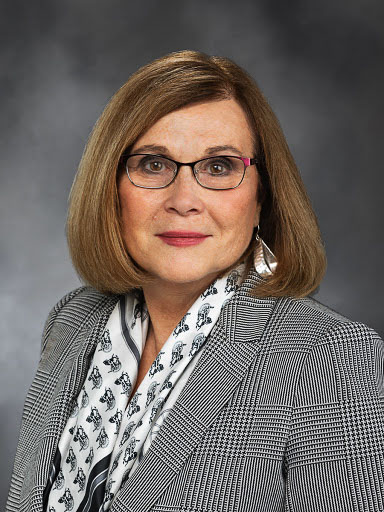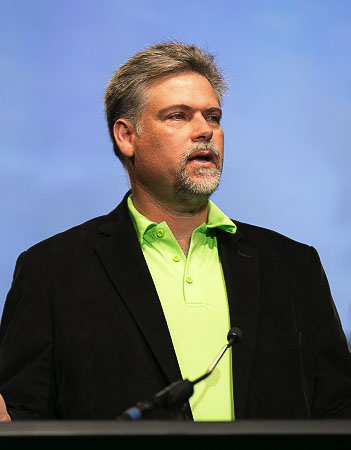Transportation bill robs Public Works Assistance Account that helps small communities
The $16.8 billion transportation package was amended in the House on Tuesday, removing the controversial 6 cents export fuel tax that was proposed to raise $2 billion over the 16-year proposal. The Move Ahead Washington legislation (ESSB 5974) now goes to the Senate, which passed the bill including the fuel export tax.
The 6-cent-per-gallon fuel tax could have cost people $75 per year. This assumes a person driving 25,000 miles a year in a vehicle getting 20 miles per gallon.
“We heard that the six cent tax would have a negative effect on the economies of our neighbors,” said Rep. Ed Orcutt, (Republican, 20th District). “Well, the proposed fix in this amendment will have a negative impact on the economies of our small towns, our small cities, our rural communities, right here in this state. While we should not have a negative impact on the economies of our neighbors, we certainly shouldn’t be fixing it by having a negative impact on our own citizens.”


Last week, governors and legislators from Oregon, Idaho, and Alaska expressed outrage with the transportation package, which had no input from Washington’s Republican legislators. Each state was discussing “retaliation.” Alaska proposed a $15.75 tax on each barrel of crude oil sent to Washington refineries. They also proposed taxing fish exported to Washington, as well as taxing Washington-based fishing boats that dock in Alaska during fishing season.
On Saturday, House Transportation Chair Rep. Jake Fey (Democrat, 27th District), said he would back away from the fuel export tax. Instead he would take $100 million a year in funds from the Public Works Assistance Account (PWAA). That prompted immediate push back from the PWAA Board on Monday.
“This is a short-sighted proposal that will have negative consequences for our communities,” said Public Works Board Chair Kathryn Gardow. “Whenever the Legislature finds itself needing quick, easy cash, it turns to the public works assistance account.”
She mentioned the legislature had already robbed $150 million a year of PWAA funds to fund part of the McCleary fix.
“Last year we received $255 million in requests with only $129 million available,” said Gardow.
Fey spoke about the global uncertainty in addition to the pushback from neighboring states in pushing his amendment. Fey said on the House floor he heard some “serious concerns from our neighbors” on how this tax would affect their economy. “We felt that there had to be a different way in addressing our needs.’’
Vancouver’s Rep. Sharon Wylie (Democrat, 49th District) spoke in favor of the amendment to not tax neighboring states. “They didn’t like the first method for paying for the public works project.”
Wylie pushed support for the overall transportation package. “The money that comes through the Public Works Trust Fund is currently unallocated,” she said. “Let’s put it to work on transportation infrastructure.” She is a key proponent of the overall package which delivers at least $1 billion to fund the Interstate Bridge Replacement (IRB).
“This proposal trades one bad idea for another,” said Rep. Peter Abbarno, (Republican, 20th District). “Unfortunately, the amendment sweeps one-and-a-half billion dollars from the account, which will clean it out and deny our cities and counties the ability to have this funding source for vital infrastructure.
“It’s taking opportunity away from our local communities,” Abbarno said.
“It’s a breach of trust,” read a statement from the city of Auburn.
“These are not the most dire times,” Rep. Jim Walsh told the House. He urged them not to sweep funds from the PWAA in a move that one of his constituents likened to a game of “3-card monte.”
The amendment passed 52-45 on Tuesday, removing the tax from the package. The package itself passed 54-43 late Tuesday night and heads back to the Senate for final consideration.
Rep. Ed Orcutt tells fellow House members that the legislature shouldn’t fix the problem created by trying to tax other states by raising taxes on Washington citizens. He objected to the Fey amendment which removed the export fuel tax and replaced it by robbing the state’s Public Works fund. Video courtesy TVW
Using vehicle sales tax revenues
Republicans also had concerns about the $2 billion transfer from the general fund for the package. Republican transportation leaders in the Senate released a proposed transportation package on Tuesday that would not use any new taxes or fees. Instead, it would be funded with the state motor vehicle sales tax.
Rep. Andrew Barkis, (Republican, 2nd District), introduced an amendment Tuesday to use the motor vehicle tax instead of transferring $2 billion from the operating budget. Doing so would make the package more sustainable for future transportation funding, he said on the floor.
“We have a tax source that has a natural nexus to the transportation arena,” Barkis said. ”That is the sales tax that is collected on the sale of automobiles in the state of Washington. This sales tax generates a considerable amount of money that could be and should be used to fund our transportation system..”
His amendment proposed to use 50 percent of vehicle sales tax revenues to fund transportation. That would generate $10.8 billion and not create any new taxes, according to Barkis. It would have allowed the legislature to avoid robbing the PWAA, instead keeping $2 billion in the general fund.
It would allow the Legislature “to make a decision on how we want to fund transportation now and in the future,” he said.
The Barkis amendment was rejected, 57-39.
Legislative staff in Olympia estimated the proposed new export fuel tax would have brought in around $2 billion over the next 16 years, with the lion’s share coming from levies on gasoline and diesel delivered to Oregon. A smaller share based on smaller volumes of deliveries would have been borne by consumers in Idaho and Alaska.
All three affected neighboring states lodged complaints with Washington Gov. Jay Inslee about taxation without representation. The Idaho House of Representatives in a unanimously approved resolution flat out declared the proposed exported fuel tax as a violation of the U.S. Constitution’s interstate commerce protections.
Rep. Andrew Barkis offered an amendment to the proposed transportation package that would take half the sales taxes collected on automobile sales, and use it for transportation. That would have avoided raiding the state’s general fund by $2 billion and also saved the Public Works account from being raided. Video courtesy TVW
$75 versus $2,000
Oregon Gov. Kate Brown objected to her citizens having to pay 6 cents per gallon in tax to Washington state. Yet Washington representatives were silent when Oregon decided to tax Southwest Washington citizens to pay for their transportation infrastructure, via tolls.
In the failed Columbia River Crossing, tolls were going to be $8 each way, according to the former Vancouver mayor. That could have easily run $2,000 to $4,000 per year.
The 6 cent gas tax was pulled down because of elected leaders willing to fight for their constituents. How much would that have cost?
If someone drove 25,000 miles a year, in a car getting 20 miles per gallon, the tax would have been $75 a year. Oregon’s elected leaders protested, resulting in the removal of the export fuel tax from the House bill.
Yet five years ago when Oregon was debating HB2017, which included tolling starting “at the border with Washington,’’ there was silence. No Washington representatives protested Oregon’s tax that could cost citizens working in Oregon $2,000 to $4,000 per year.
State Senate Republican Leader John Braun (20th District) predicted during a press conference Monday there would be further outrage if the general public caught wind of the proposed “significant increases in fees” on driver license renewals and new and replacement plates.
“Their package has a lot of things that are going to really upset Washingtonians around the state,” the minority leader said.
Time is running short for the Democratic leaders in the Washington Legislature to finalize the transportation infrastructure package, which they have dubbed Move Ahead Washington. The 2022 session is scheduled to wrap up by March 10 next week.




